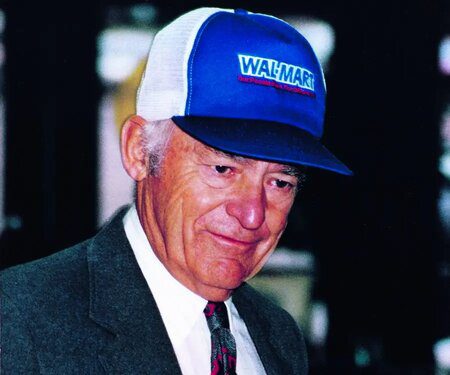“With the possible exception of Henry Ford, Sam Walton is the entrepreneur of the century.”- TOM PETERS, co-author of In Search of Excellence
One of my favorite entrepreneurs of all time is Sam Walton, the founder of Walmart. Sam was a visionary, cheerleader, great salesman, serial borrower, tough competitor, relentless entrepreneur who built a retail empire without losing his common touch. One of the most interesting things about Sam Walton was his vision for Walmart and his focus on generational wealth. As long have observed the Forbes list of the richest people globally, his offsprings have always been in the top 20 Forbes richest list, which is very impressive.
The Walton family held five spots in the top ten richest people in the United States until 2005. Two daughters of Sam’s brother Bud Walton—Ann Kroenke and Nancy Laurie—hold smaller shares in the company. The Walton family is an American family whose collective fortune makes them the richest family in the United States of America and the richest family in the world.

Samuel Moore Walton (March 29, 1918 – April 5, 1992) was an American businessman and entrepreneur best known for founding the retailers Walmart and Sam’s Club. Wal-Mart Stores Inc. grew to be the world’s largest corporation by revenue as well as the biggest private employer in the world. For a period of time, Walton was the richest man in America.
Walmart is the world’s largest retailer, one of the world’s largest business enterprises in terms of annual revenue, and with just over 2.2 million employees, the world’s largest private employer.
As of December 2014, the Waltons collectively owned 50.8 percent of Walmart. In 2018, the family sold some of their company’s stock and now owns just under 50%. In July 2020, the annual Sunday Times Rich List reported that the Walton family’s net worth was $US225.2 billion.
Sam Walton’s Autobiography: Made in America is one of my favorite business biographies as it contains lots of wisdom, insights, anecdotes, in the trenches advice, a very good read. The book chronicles his starting out, major tough early business lessons, borrowing ideas from others, customer obsession, Small Town Strategy, battling cancer, raising kids, understanding the value of a dollar among other insights.
If everybody else is doing it one way, there’s a good chance you can find your niche by going in exactly the opposite direction. But be prepared for a lot of folks to wave you down and tell you you’re headed the wrong way.
